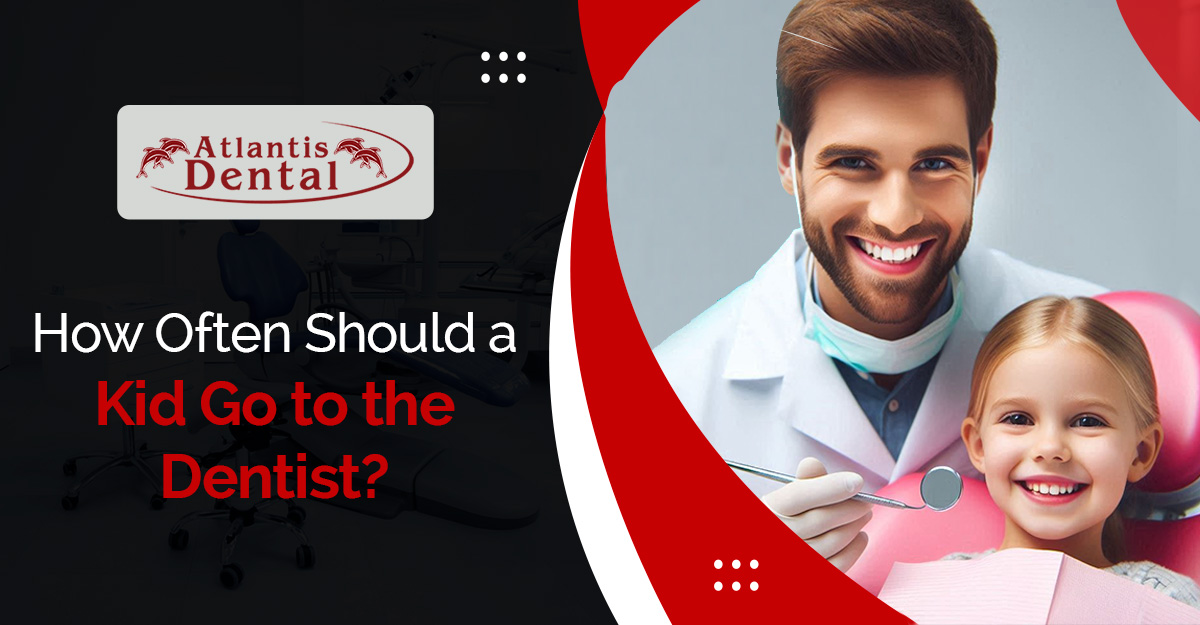Ensuring your child’s oral health is crucial for their overall well-being. Regular dental visits play a vital role in maintaining healthy teeth and gums. But how often should a kid go to the dentist? This blog will delve into this question and provide insights on various related topics to help you make informed decisions about your child’s dental care.
What Age Should a Kid Go to the Dentist?
The Recommended Age for the First Visit
The American Academy of Pediatric Dentistry (AAPD) recommends that a child should visit the dentist by their first birthday or within six months after their first tooth appears.
This early visit is crucial for several reasons.
i) Early Detection of Problems
Early dental visits allow for the early detection of potential issues. Dentists can identify problems such as tooth decay, malocclusion (misaligned bite), and other dental anomalies early on. Early intervention can prevent these issues from becoming more severe and complicated to treat.
ii) Establishing Good Oral Hygiene Habits
Starting dental visits at a young age helps in establishing good oral hygiene habits. Dentists can guide parents on how to care for their child’s teeth and gums, including proper brushing and flossing techniques. This sets the foundation for a lifetime of good oral health practices.
When Should a Child Get Their First Teeth Cleaning?
There’s no specific age for a child’s first teeth cleaning. It usually coincides with their first dental visit around their first birthday or when they have a few teeth erupted. The dentist will determine the cleaning approach based on your child’s age and the number of teeth present.
For very young children, a gentle cleaning with a soft brush or a swab might be sufficient. As your child gets older and has more teeth, a regular dental cleaning similar to an adult’s will be performed.
What Should I Expect at My Child’s First Visit to the Dentist?
i) Initial Examination
During the first visit, the dentist will conduct a thorough examination of your child’s mouth. This includes checking the teeth, gums, and overall oral health. The dentist will look for any signs of tooth decay, gum disease, or developmental issues.
ii) Gentle Cleaning
A gentle cleaning may be performed during the first visit, especially if your child already has several teeth. The cleaning helps remove any plaque or tartar buildup and introduces your child to the cleaning process in a non-threatening way.
iii) Discussion and Education
The dentist will also discuss oral hygiene practices with you. This includes tips on brushing and flossing, the importance of a balanced diet, and the potential impact of habits such as thumb sucking and pacifier use. This is a great opportunity to ask any questions you may have about your child’s oral health.
How Often Should Kids Get Dental X-Rays?
Dental X-rays are an essential tool in pediatric dentistry, providing critical insights into a child’s oral health that are not visible to the naked eye. While the idea of exposing a child to radiation might be concerning for some parents, it’s important to understand that modern dental X-rays are extremely safe, utilizing a very minimal amount of radiation. This diagnostic tool’s benefits far outweigh the potential risks, ensuring that any underlying dental issues can be identified and treated early.
Tips for Maintaining Your Child’s Oral Health Between Visits
Daily Brushing and Flossing
Maintaining good oral hygiene at home is just as important as regular dental visits. Ensure your child brushes their teeth twice a day with fluoride toothpaste and flosses daily to remove plaque and food particles between the teeth.
Balanced Diet
A balanced diet is crucial for healthy teeth and gums. Limit sugary snacks and drinks, as they can lead to tooth decay. Encourage your child to eat a variety of fruits, vegetables, whole grains, and dairy products to support their oral health.
Fluoride Use
Fluoride strengthens tooth enamel and helps prevent cavities. Your dentist may recommend fluoride treatments during visits or suggest using fluoride toothpaste and mouth rinses at home.
Conclusion
Visiting the dentist every six months is a good rule of thumb for maintaining your child’s oral health. Regular check-ups, professional cleanings, and preventive care can help keep their teeth and gums healthy, detect any issues early, and educate you and your child on the best practices for oral hygiene.
For top-quality dental care, consider visiting Atlantis Dental Care. Our Pediatric dentist is dedicated to providing the best care for your children, ensuring a comfortable and positive dental experience. With a focus on preventive care and early detection, Atlantis Dental Care helps keep your child’s smile healthy and bright from their first tooth and beyond. Schedule an appointment today to give your child the best start in their oral health journey.


